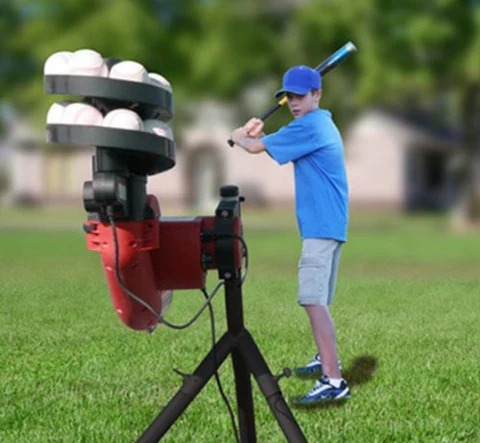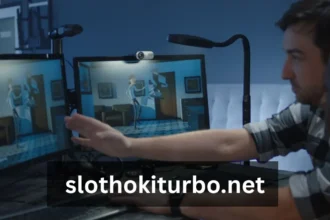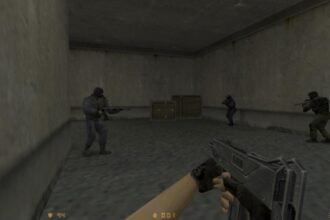Coaching in the Age of Precision
Coaching baseball or softball today isn’t what it used to be. It’s no longer just about tossing balls and hoping for improvement. It’s about tracking progress, building confidence, and making every single minute of practice count. For modern coaches—especially those juggling packed schedules, limited staff, and hungry young athletes—technology has become a crucial teammate.
Among the most powerful of those tools? The pitching machine. Not just a gadget anymore, it’s become an essential part of modern training programs—from youth leagues to high school teams and even travel squads.
Where once a softball pitching machine was a rare sight limited to elite academies, it’s now a regular part of practice fields across the country. Coaches are discovering that these machines do far more than just deliver pitches. They offer structure, boost player focus, and create opportunities that weren’t possible before.
The Power of Consistent Repetition
One of the biggest challenges for any coach is inconsistency—especially in pitching. Young pitchers may tire quickly, volunteer helpers often vary in skill, and even your best thrower can have an off day. But a machine doesn’t flinch. It doesn’t fatigue. It shows up every time with the same release, the same speed, and the same rhythm.
This reliability builds something you can’t coach overnight: confidence. When a young hitter knows where the ball is coming from, they can focus entirely on mechanics. They can refine their stance, test out timing, and build muscle memory without second-guessing the pitch.
And this matters even more in softball, where timing is everything. A softball pitching machine delivers underhand throws with precision, allowing hitters to lock in and learn without the fear of inconsistent pitching disrupting their rhythm.
Making the Most of Limited Time
Ask any coach, and they’ll tell you—practice hours always feel too short. Between warmups, drills, team talks, and scrimmages, batting often gets squeezed. A good pitching machine changes that completely. It allows for efficient, structured hitting sessions without needing a full bullpen or multiple assistants.
While some players are hitting, others can rotate through fielding drills or receive one-on-one coaching. This division of labor turns a 90-minute session into a well-oiled development system. Even when daylight is limited or gym space is tight, you can get more swings in less time—without compromising on quality.
Training Game-Speed Reactions
Today’s pitching machines do far more than toss fastballs. They simulate real-game situations. Modern models let you adjust pitch speed, angle, and type. Whether it’s a rising fastball, a sweeping curve, or a changeup that drops at the last second, these machines keep hitters on their toes.
For softball coaches, this is especially valuable. With a softball pitching machine, players can practice reading spin, tracking drops, and recognizing movement early. It trains their eyes and minds, not just their bodies. It mimics the pressure and unpredictability of real-game at-bats—without waiting for game day.
This kind of advanced training builds sharper instincts and quicker decision-making, which are critical for competitive athletes moving toward varsity, college, or travel ball.
Building Independence in Young Athletes
There’s something powerful about watching a player take charge of their own growth. That’s exactly what a pitching machine encourages. Players don’t have to wait for dad to come home from work, or for a teammate to toss balls. With a home setup or cage access, they can practice whenever they’re ready.
They learn discipline—how to stay consistent even without a coach watching. They can record their swings, replay them, analyze them, and come back stronger the next day. The machine becomes more than a tool. It becomes a partner in progress.
For coaches, this means your players show up to practice more prepared. You’re no longer teaching basics every session. You’re refining skills and developing deeper baseball or softball IQ.
One Machine, All Skill Levels
A common misconception is that pitching machines are only for advanced players. That couldn’t be further from the truth. There’s a wide range of machines available to fit every age group and skill level.
Beginner-level machines are designed with safety and simplicity in mind. They’re ideal for teaching proper hand-eye coordination and swing fundamentals. On the other hand, more advanced softball pitching machines allow you to replicate real game conditions—perfect for high school or college-level programs.
As your team evolves, your equipment grows with you. Most machines are portable, adjustable, and durable—built to support years of training and thousands of swings.
Long-Term Value, Not Just a Purchase
Yes, pitching machines cost money. But consider the alternatives: paid batting cage time, external private lessons, or worse—players getting stuck due to lack of reps. A good machine pays for itself in performance gains, team morale, and injury prevention.
By using a machine during batting practice, you protect your pitchers from overuse. You also reduce dependence on assistant coaches for throwing, which means fewer staffing headaches. And let’s not forget: consistency in training brings consistency in results. That translates into better seasons, confident players, and more trust from parents.
When budget is a concern, consider sponsorships, fundraising, or even team-shared purchases. The return on investment is worth every penny.
From Machine to Metrics: Training Smarter
Many modern machines now come with the option to pair with smart devices or analytics software. These systems track swing speed, launch angle, and even exit velocity—allowing coaches to identify patterns and weaknesses.
Even without fancy tech, video recording players during machine reps allows for in-depth analysis. Slow-motion playback reveals subtle flaws that might be missed in real time. This visual feedback can be used for tailored coaching, better than any chalkboard or lecture.
For softball coaches, pairing a softball pitching machine with video tools lets you break down stride timing, shoulder alignment, and bat lag—making every session a chance to improve.
Reducing Strain, Preventing Burnout
If you’re working with a high school team, chances are your pitchers are throwing a lot. Too much, even. Constant batting practice can wear them down fast—putting their arms at risk for serious injury.
By shifting batting practice to a machine, pitchers can rest more and focus on skill-specific workouts. This rotation preserves their strength for when it matters most: game time. You’ll also avoid over-relying on one or two players, creating a healthier and more sustainable team dynamic.
Players stay fresh. Coaches stay confident. And everyone benefits.
Real-Life Impact: Coaches Speak Out
Take Coach Daniels from North Carolina. He was skeptical at first. “I thought it’d be a toy,” he admits. But after adding a softball pitching machine to his practice routine, he saw a transformation. “Strikeout numbers dropped. Players came early just to get extra reps. Our team morale went through the roof.”
And he’s not alone. From community leagues to varsity powerhouses, stories like these are becoming common. Pitching machines are no longer optional extras—they’re becoming the heart of team development.
Focus, Focus, Focus: The Mental Edge
Beyond physical gains, pitching machines also help build mental toughness. Repetition builds rhythm. It also builds patience, self-awareness, and resilience.
Players learn to concentrate through fatigue. They start self-correcting their form. They stay locked in for dozens of pitches without drifting. That kind of laser focus carries over to real games—where distractions are plenty and the pressure is real.
A softball pitching machine, in particular, helps train players to stay mentally present through the unusual spin and speed of the softball’s flight. And those mental reps are just as valuable as the physical ones.
Final Thoughts: Coaching for the Future
If you’re serious about developing talent, improving performance, and keeping your team strong—physically and mentally—a pitching machine is one of the smartest tools you can invest in. It’s not about replacing the coach. It’s about multiplying the coach’s impact.
From time management and reduced injuries to player confidence and year-round training options, the benefits are clear. And whether you coach baseball or softball, there’s a machine out there ready to meet your team’s needs.
Equip your team for success. Empower your players to grow. And evolve as a coach in the process.
Because great coaches don’t just adapt to the game—they lead it.

















